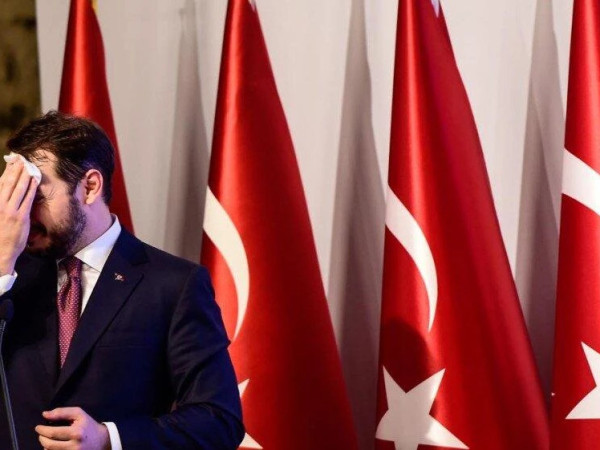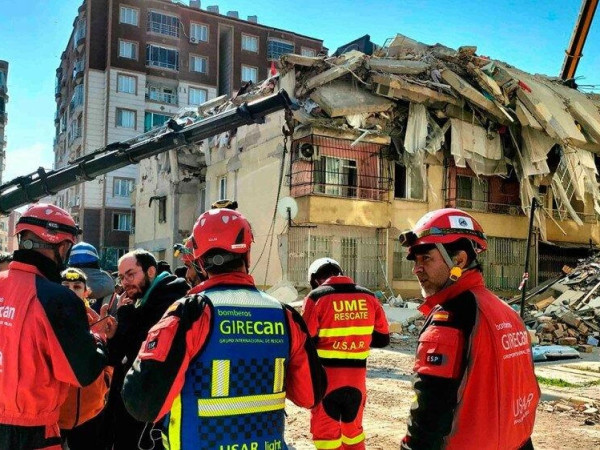The European Bank for Reconstruction and Development (EBRD) responded to the coronavirus pandemic with record investment of €11 billion in 2020 through 411 projects, addressing the urgent needs of the 38 economies where it invests. This represents a 10 per cent increase in annual business investment relative to 2019, when the Bank provided €10.1 billion to finance 452 projects.
EBRD President Odile Renaud-Basso said: “The Bank put in an impressive performance and delivered on its promise to help our countries and clients deal with the economic impact of the Covid-19 pandemic. Our investments were sharply higher than the year before and we also provided policy support to help the private sector through the crisis.”
The EBRD was the first international financial institution to adopt emergency measures to address the economic impact of the pandemic in March last year. It focused on supporting existing clients with the provision of short-term liquidity and working capital to protect viable companies and safeguard progress towards sustainable, fair and open market economies in its countries of operations.
Keeping vital trade flows going, the EBRD supported a new record of 2,090 trade finance transactions worth €3.3 billion under its Trade Facilitation Programme, involving 90 issuing and 140 confirming banks across 40 countries worldwide. Examples of transactions include the import of medicines from Spain, Turkey and Switzerland into Lebanon, Georgia and Jordan, or the export of solar power technologies from Greece to Spain and the United Kingdom.
In addition to its own funds, the EBRD also directly mobilised €1.2 billion from co-investors at a time when the global economy was suffering its most severe slump since the Great Depression of the 1930s. The Bank continued to concentrate its support on the private sector, which accounted for 72 per cent of total EBRD investment last year.
Due to the urgency of addressing the Covid-19 crisis, in 2020 the share of green investment fell to 29 per cent after 46 per cent in 2019. However, in October the Bank reaffirmed its commitment in this area with the adoption of a new five-year Strategic and Capital Framework, which aims to make the EBRD a majority green bank by 2025.
The Bank continued to promote economic resilience by supporting the development of local currency and capital markets. Following a significant decline in the early days of the crisis, activity rebounded to reach a total of 113 projects.
The development of the euro-US dollar exchange impacted the Bank’s reported investments levels, in particular in countries where it has substantial operations in US dollars.
Addressing urgent needs
The EBRD stepped up its investment to address immediate needs and to create the foundations for recovery, with a focus on building back better economies in the future. As the pandemic is exacerbating inequalities, especially for women, young people and other groups, the Bank reinforced its efforts with regard to gender and economic inclusion. This work resulted in a 24 per cent increase in inclusion projects, with a total investment volume of €4 billion, and a record number of gender activities.
In central and eastern Europe, Warsaw joined the Bank’s flagship Green Cities urban sustainability programme and, as a first project, received a joint €87.2 million-equivalent loan from the EBRD and ING for the acquisition of new metro trains. The Bank also intensified its engagement in green energy with five major new renewables projects in carbon-intensive Poland.
The Green Cities programme continued to grow rapidly and reached 44 municipalities across the EBRD regions by the end of the year. Responding to high levels of demand, the Bank’s Board of Directors approved a doubling of financing so that the programme now commands more than €2 billion of funding.
Facilitating the transition from fossil fuels to renewable sources of energy, the Bank launched a Just Transition Initiative to ensure that those communities, sectors and workers who stand to lose economically as a result of policies associated with decarbonising economies are protected through new alternatives.
One of the first projects under this approach was a €75 million bond investment by the EBRD in support of a new solar photovoltaic plant in a coal-dependent region of Greece, the largest solar energy project in south-eastern Europe to date. The programme in renewables led to the launch of new auctions for solar and wind in Albania and wind in Uzbekistan.
The EBRD regions
In the Western Balkans, the EBRD further increased its support for small and medium-sized enterprises (SMEs) and the private sector with the provision of €729 million in loans to commercial banks for on-lending to local businesses for investments that will support the recovery and strengthen their competitiveness. This includes a new Guarantee for Growth mechanism introduced in Albania, providing Raiffeisen Bank Albania with an unfunded guarantee of up to €100 million in local currency equivalent linked to the bank’s local-currency sovereign bond portfolio and freeing it to increase its lending to the local economy.
The EBRD also continued to support regional connectivity and vital infrastructure, for instance with a €30 million loan to Kosovo to ensure the continuation of vital services and a €50 million senior loan to EPCG to support the stability of energy provision in Montenegro. In Serbia, the Bank provided a €85 million loan to finance the construction of a new section of the “Peace Highway” connecting the country with Kosovo and financed the creation of a fibre broadband network in rural areas with donor support.
Stepping up their support, in 2020 the EBRD and donors to the Western Balkans Investment Framework approved an additional €77.6 million in investment grants and technical cooperation for projects and this will be supported by a further €204 million in EBRD finance. The EU, the largest EBRD donor, also provided a €50 million guarantee for renewables investments in eastern Europe (Neighbourhood East) and North Africa (Neighbourhood South).
In Ukraine, the EBRD combined investment with policy engagement with a €450 million loan to the state road agency Ukravtodor, supporting the government in the development of national road infrastructure and the fight against corruption. The Bank’s public-private partnership (PPP) advisory activities produced notable results in 2020. The Bank’s Infrastructure Project Preparation Facility advisory led to the commercial close of two port PPPs at Olvia and Kherson in Ukraine as well as the commercial close for Sofia Airport.
The EBRD’s priority in Turkey during 2020 was the provision of vital support to the real economy through engagement with local partner banks. The Bank channelled a record €893 million to Turkish banks to support thousands of businesses across the country, providing the private sector with much-needed funds. In the power sector, while providing vital infrastructure support in local currency to the Enerjisa electricity distribution company, the EBRD continued financing renewables with a €30 million loan to the Kiyikoy wind farm.
In the Caucasus, the Bank financed over US$ 400 million worth of investments in the energy sector, including the first renewable project Masrik Solar in Armenia and financing the transmission grid and critical energy infrastructure in Georgia.
In Central Asia, the largest infrastructure project in Kazakhstan outside the oil and gas sector, the Almaty ring road, reached financial close. The EBRD arranged a US$ 585 million syndicated loan in support of the largest public-private partnership in the region to date. In Uzbekistan, the Bank financed a 100 MW solar photovoltaic plant in the Navoi region, one of the first privately owned renewable energy projects in the country, with an equity bridge loan of up to US$ 60 million.
The coronavirus pandemic also hit the EBRD’s southern and eastern Mediterranean (SEMED) region hard. The Bank stepped up its financing in Egypt with the provision of €784 million in liquidity lines to local banks for on-lending to businesses. In Morocco, Bank of Africa - BMCE Group became the first recipient under the Bank’s Resilience Framework in April, with a €145 million financing facility. The Bank also provided €150 million to support better water resource management and water conservation in the agricultural regions of Saiss and Garet.
Policy engagement
Complementing its investments, the EBRD boosted policy engagement in 2020. Together with multilateral and private-sector partners, the Bank stepped up the activities of the Vienna Initiative, a platform for key private and public stakeholders in the financial sector of central and south-eastern Europe. The EBRD supported the governments of Albania and North Macedonia in creating the foundations for viable projects in renewables and joined forces with the World Bank in the launch of a Platform Initiative in Support of Coal Regions in Transition in the Western Balkans and Ukraine.
In November, the EBRD Board of Directors approved the establishment of the International Chernobyl Cooperation Account at the request of Ukraine. The purpose of the new donor fund is to address remaining challenges at Chernobyl and to sustain the achievements accomplished through the Chernobyl Shelter Fund (New Safe Confinement) and the Nuclear Safety Account (Interim Spent Fuel Storage Facility, Liquid Radwaste Treatment Plant). Despite obstacles caused by the pandemic, the Environmental Remediation Account for Central Asia was able to launch projects in 2020 to remediate two sites in the Kyrgyz Republic, Shekaftar and Min-Kush.
The coronavirus pandemic also accelerated the shift towards a more digital world and triggered changes in the way that the EBRD provides support to SMEs. The Bank made a rapid adjustment to deliver services aimed at the development of skills for small business owners, employees and consultants, using digital infrastructure. More than 15,000 business professionals in countries where the EBRD invests participated in training and business mentoring sessions that the Bank delivered online in 2020. Donor funding has been crucial for this digital transition.
Source: EBRD















